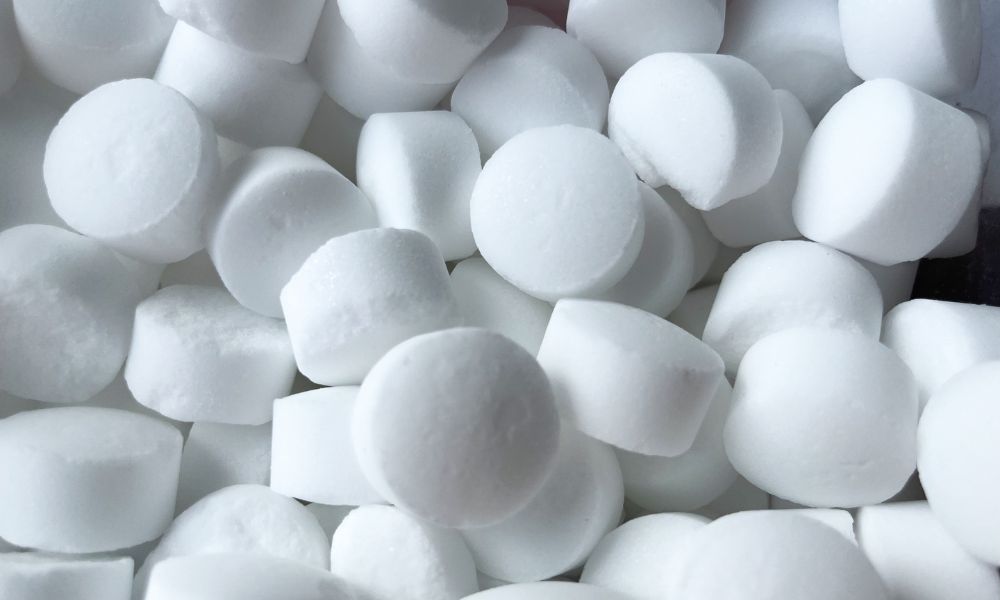A water softener is essential for tap water because it breaks down mineral buildup in pipes, fixtures, and water heater interiors. This is essential if you want good, clean-tasting water. But there might be some things about your water softener that you don’t understand, like why does your water softener require salt? We offer some insight so that you know the importance of adding it to your water softener.
Why Your Water Softener Requires Salt
When you ask, “Why does my water softener require salt?” you should first consider the benefits of using a water softener and what salt could do for your water supply. For instance, the water softener breaks down minerals, but what is salt doing there? The salt regenerates the resin beads that would otherwise leave hardness in your water. Luckily, the salt content doesn’t interfere with the taste of your water.
What Type of Salt Does Water Softener Need?
Your water softener needs solar or evaporated salt. Solar salt comes from dissolved seawater made into a crystal or pellet. Evaporated salt comes from a process that evaporates steam and water into a crystal form.
Which one you should buy depends on your needs; both are equal options, but they perform differently. Solar salt prevents bridging in the brine tank, while evaporated salt does more work by eliminating residue from the storage tank. Evaporated salt will be the best option if your household consumes lots of water.
Can You Use Rock Salt in Water Softener?
Rock salt is an affordable option. Yet, this choice isn’t the best unless you plan on doing extra work by cleaning out the brine tank. Rock salt contains high traces of water-insoluble matter, which could cause the softener to malfunction.
Can You Use Table Salt in Water Softener?
Putting table salt in your water softener isn’t a safe option at all. Table salt is for cooking, while sodium chloride mixes, like evaporated and solar, are for water softeners. You should never use table salt because it’s coarse, whereas solar and evaporated salt are nubby.
Table salt won’t help the regeneration of resin beads; it mushes along the lining of your pipes, causing buildup and eventually leading to clogging and other undesirable problems with your water system.
When To Add Salt to a Water Softener
The best time to add salt to a water softener is once a month. Even though a lot is going on in your life, try to make it a habit and write down the dates and times to check the brine tank on your calendar. Using a calendar helps you stay ahead of schedule.
It’s never too soon to rethink how your water system is currently going. If you want cleaner water, you should check out the water softener systems for well water that we offer at Delmarva Water Solutions. We’re professional water specialists looking to ensure every household has clean water, especially in their private well water systems.

